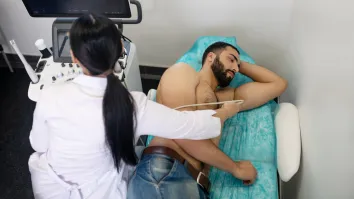
UAE launches national survey to bolster public health policies
The initiative aims to enhance national health policies and achieve goals set for comprehensive development by 2030.
The Ministry of Health and Prevention (MoHAP) of the United Arab Emirates (UAE) has announced the launch of its National Survey for Health and Nutrition 2024-2025.
In collaboration with the Federal Competitiveness and Statistics Centre, local health authorities, and statistical centres, the survey aims to enhance national health policies and achieve goals set for comprehensive development by 2030.
The National Health Survey will focus on six key indicators, including socio-economic factors, household health expenditures, and the prevalence of non-communicable diseases and risk factors (STEPS).
The survey will measure biophysical data, assess the accessibility and utilisation of healthcare services, and evaluate air pollution indicators.
ALSO READ: Burjeel Holdings unveils new Day Surgery Centre in Al Ain’s Al Dhahir
In addition, the National Nutrition Survey will observe six crucial areas, including micronutrient deficiencies, dietary habits, and growth metrics for children up to five years old.
It will also measure urinary iodine and sodium levels, anaemia in pregnant women, and daily salt consumption.
“We are committed to building a robust database to refine planning and develop mechanisms that elevate health sector performance to the highest international standards,” Hussain Abdul Rahman Al Rand, Assistant Undersecretary for the Public Health Sector at MoHAP, said.
According to MoHAP, collected data will remain confidential through stringent measures, ensuring that information is exclusively used for statistical purposes.



















 Advertise
Advertise





